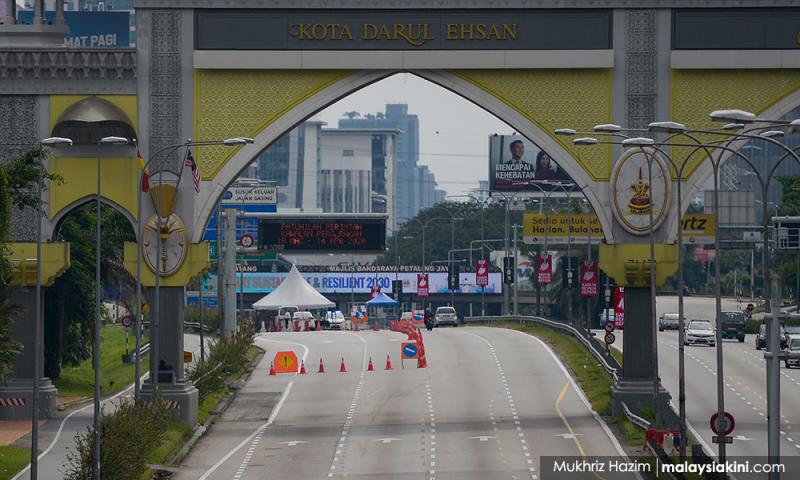COMMENT | Beyond stimulus packages, economy needs 'new deal'
COMMENT | PSM commends the government as the Supplementary Stimulus Package (Langkah Tambahan Pakej Prihatin) has addressed some of the criticisms levelled against the Stimulus Package announced by the Prime Minister on March 27.
Many voices emanating from the business sector criticised the March 27 package for not giving enough support to small and medium-sized enterprises (SMEs). The SMEs are businesses with less than 150 employees and/or gross sales of less than RM25 million per year.
The SMEs form the backbone of the Malaysian economy, collectively employing about two-thirds of Malaysian workers.
Assistance for SMEs
The RM10 billion Supplementary Stimulus Package announced by the Prime Minister on Monday has allocated RM7.9 billion to enhance the wage subsidy scheme that was announced on March 27.
The subsidy per worker had been increased to RM1,200 per month for three months for companies with less than 75 workers (for workers with a monthly wage of less than RM4,000).
The wage subsidy is smaller (RM600 to RM800 per month) for companies with more than 75 workers.
The Supplementary Stimulus has also allocated RM2.1 billion to be paid out as grants of RM3,000 each to 700,000 micro businesses.
Apart from these fiscal outlays, the Supplementary Scheme also reduces the interest rates for Bank Simpanan loans for micro-businesses, rent reductions for SMEs utilising government buildings and a 25 percent reduction in levy charges for foreign workers.
We are also appreciative of the fact that there was no “politicking” in the presentation of this Supplementary Stimulus. Malaysians are used to seeing the incumbent minister (both BN and Pakatan Harapan) passing snide comments attacking the opposition in the course of budget presentations.
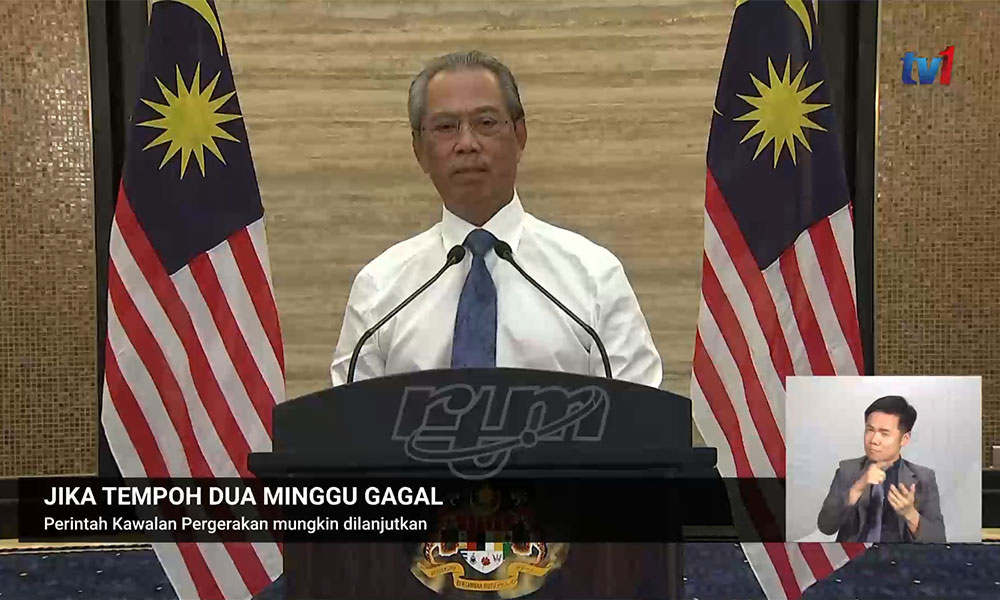
There was no hint of this in Muhyiddin Yassin’s (above) delivery on Monday, and that was refreshingly professional.
Will bosses bully workers?
However, there are some issues that the PSM is concerned about. The first is granting employers the flexibility to renegotiate the employment contract with regards to pay cuts and unpaid leave during the movement control order (MCO) period.
The PSM is concerned that unscrupulous bosses might use this “flexibility” to bully their workers to forego wages for the period of the MCO. In view that the majority of Malaysian workers are not unionised and the possibility of unemployment increase, workers could be easily compelled to take wage cuts instead of being retrenched.
The government needs to specify clearly that any alteration in the terms of employment has to be a mutual agreement with worker concerned. Otherwise, it will be categorised as “constructive dismissal” and the worker paid compensation as specified under the Employment Act.
Things will not return to 'normal'
The second is a larger issue – this stimulus package is not enough! The thinking now appears to be that the government just needs to keep the existing businesses solvent so that when the Covid-19 epidemic “blows over” they will be able to resume their economic activities, and everything will be okay. But it is not going to be as simple as that.
Certain sectors are not going to bounce back soon – aviation for example. It is almost certain that most countries will slap a two-week quarantine for overseas visitors for the rest of the year.
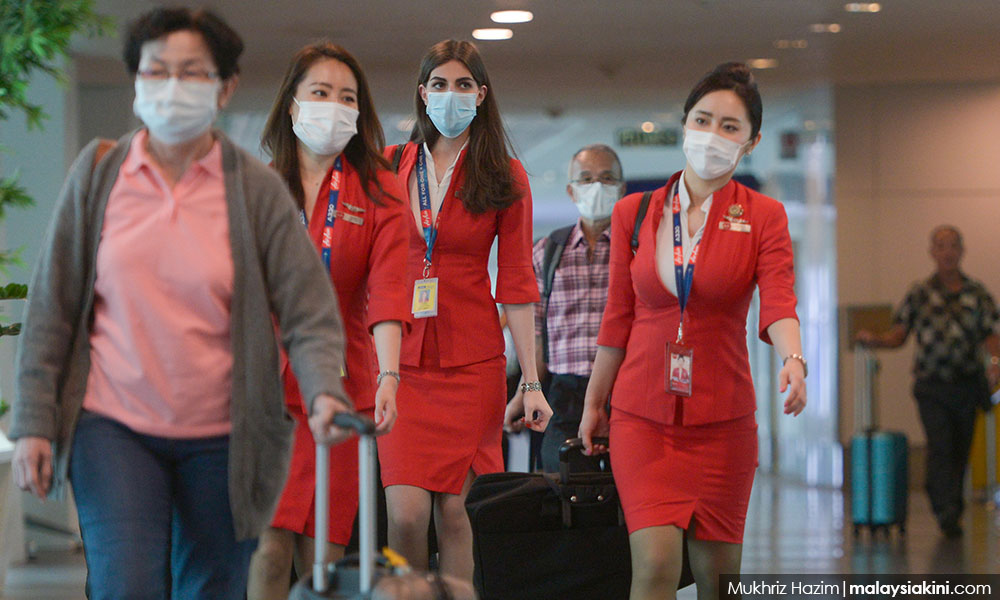
Airlines will have to downsize and lay off workers as it might take more than a year for international travel to return to 50 percent of the pre-Covid-19 volume. The collapse of the tourism sector means that the businesses that catered to foreign tourists - hotels, tourist shopping spots, tour companies and certain restaurants - will have to downsize and lay off workers.
They cannot keep thousands of workers on their payroll for months on end if business remains suppressed.
Malaysian factories that are part of the global chain are also going to be affected. The recession that is going to engulf the world economy will likely reduce the demand for the products or the components that these factories are now supplying for the international market.
These factories will have to lay off workers. Retrenchment will emerge as a big problem in Malaysia over the next few months, and this might lead to long term unemployment as it is unlikely that the private sector is in a position to establish new industries that can absorb the retrenched workers as the global economy is in a serious downward spiral.
Government intervention crucial
Government planners must appreciate that the global free market economy will not be able to recover from this crisis on its own.
There has to be significant government intervention to employ people, pay wages and create consumer demand – somewhat akin to the “New Deal” rolled out by President Roosevelt in the US in the 1930s - as such that it again becomes profitable for businesses to produce goods and services for the people.
This (Keynesian) approach requires a huge paradigm shift on the part of the economic planners and politicians whose thinking has been conditioned by the neo-liberal tradition that asserts that governments must remain small, that markets are self-correcting and the proper way of dealing with downturns is to inject liquidity into the system by buying back bonds from the private sector (Quantitative Easing - QE).
We have seen over the past 12 years how the QE approach creates financial bubbles, sky-rocketing real property prices and increasing inequality in society but without creating enough jobs especially for the younger generation.
Easy credit for the richest 0.1 percent hasn’t solved the problem of unemployment and sluggish consumer demand.
What should be the function of the economy?
We need to go back to basics and ask ourselves – how does one evaluate the national economy? By how big the Gross Domestic Product is? Or how fast is the GDP growth? Or how well the stock market is doing? Or how much FDI is coming into the country? Or the marks given to us by credit rating agencies?
The PSM believes that the following three criteria should be the most important in assessing the performance of the economy of a country:
1. Does the economy produce goods and services that the people of the country need? Food, housing, transport, health care, education, cultural products, among others.
2. Does it provide the people of the country the means to earn the income necessary to acquire these essential goods and services?
3. Does it do the above two sustainably, without aggravating the climate crisis?
'New Deal' for Malaysia
The PSM believes that the solution for the current crisis is to create jobs for all who wish to work. When people can work and get their pay, they will have the income they need to procure the essentials for their families.
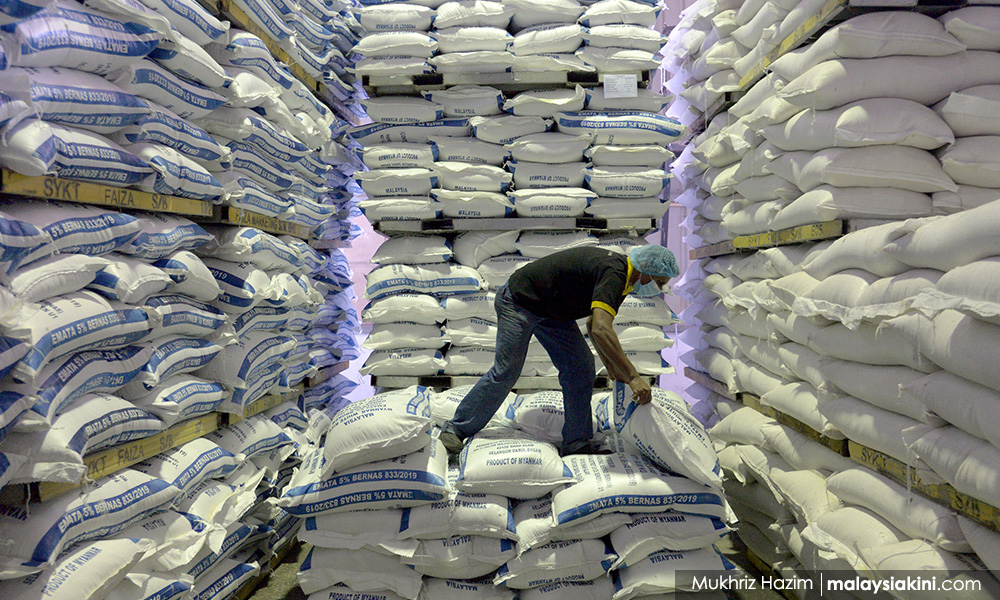
The consumer demand arising from the aggregate pay of all these workers will create business opportunities for our SMEs and they will start employing more workers to produce and sell goods to the people.
But which party will take the responsibility of creating jobs in a time of shrinking consumer demand? The private sector will not risk their capital in producing more goods when the market is so sluggish.
The richest one percent will just sit back and use their huge financial reserves to buy up stocks as the stock market collapses. Of course, the wealth of the richest one percent will go down in nominal terms as the value of their shares also go down. But the volume of shares they own will increase dramatically and they will emerge as the owners of an even larger share of the wealth of society at the end of the recession.
It’s not of immediate concern to them if the unemployment rate is five percent or 20 percent, or if there is widespread hunger in the society.
It is, therefore, only the government that can take the decisive steps required to halt the downward spiral.
We need government intervention in the economy in the form of job creation – preferably on projects for the public good such as expanding the cultivation of grains, vegetable and fruit, housing for lower-income people.
Examples of these projects are building a proper system for household waste management, rebuilding the public transport system, rehabilitating our ravaged forests, expanding the use of solar panels and other modalities of renewable energy, better care of our elderly, among others.
The household income generated by these additional jobs will expand domestic consumer demand and this will make it profitable for businesses to provide the goods and services that people need.
But this will need a big paradigm shift on the part of our policymakers, planners as well as the general public. There are downsides to having a big government bureaucracy – it can be inimical to democracy and the freedom to think differently. But there are ways of dealing with this by creating checks and balances as well as by devolving power to local structures.
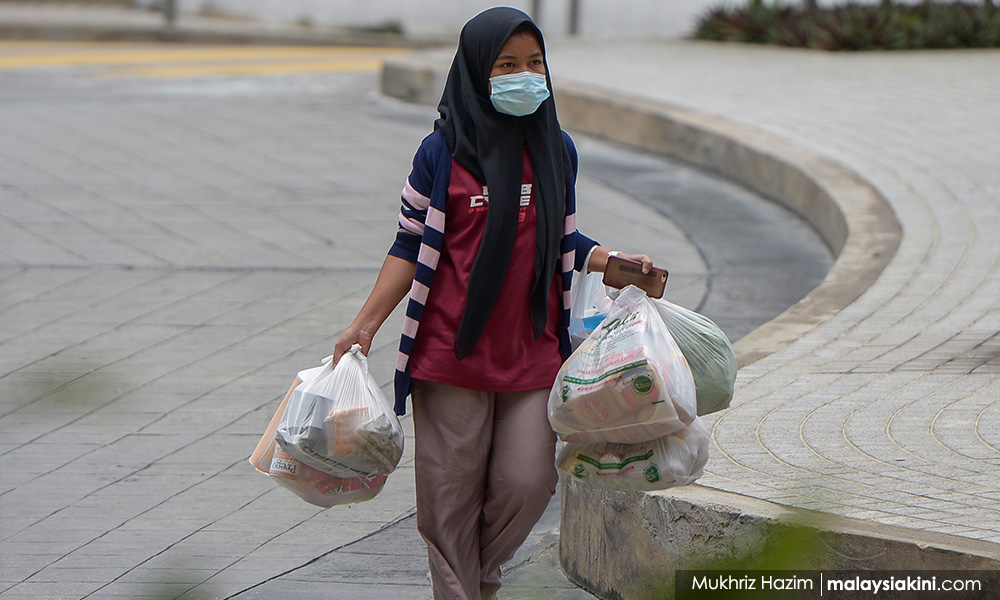
We need to get more people involved in the discussion as the problem of a severe economic downturn is already looming over us and we need to rapidly develop more clarity on the measures required to lessen its effects on the economically weaker members of our society so that we can all weather this storm together.
DR JEYAKUMAR DEVARAJ is former lung and respiratory specialist at Ipoh GH and chairperson of PSM.
The views expressed here are those of the author/contributor and do not necessarily represent the views of Malaysiakini.
Keep up with the latest information on the outbreak in the country with Malaysiakini's free Covid-19 tracker.
Malaysiakini is providing free access to the most important updates on the coronavirus pandemic. You can find them here.
Help keep independent media alive - subscribe to Malaysiakini.
RM12.50 / month
- Unlimited access to award-winning journalism
- Comment and share your opinions on all our articles
- Gift interesting stories to your friends
- Tax deductable
